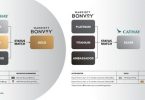LONDON, England – A new study ranks the U.K. 13th out of 110 countries in a worldwide assessment of wealth and quality of life. Norway, Denmark, and Australia lead the rankings. The U.K. ranks ahead of Germany (15th) and France (18th).
The Legatum Prosperity Index(TM) provides the world’s only global assessment of national prosperity based on both wealth and well-being. The Index assesses 110 countries (accounting for over 93% of the world’s population and 97% of the world’s GDP) and ranks them based on their performance in eight sub-indices, including Economy, Governance, Personal Freedom, and Social Capital.
The U.K. has improved its Prosperity Index score by 13% over the past two years and ranks 4th in the Entrepreneurship & Opportunity sub-index, which measures how countries perform in three areas: entrepreneurial environment, innovative activity, and access to opportunity. In terms of overall score, the U.K. is the most improved country in western Europe over the past two years.
Greece and Italy each dropped four places. While most European countries’ absolute Index scores have remained stable despite the financial crisis, Italy is among a small group of countries globally whose absolute Index score has dropped since 2010.
“We want to assess the long term drivers of prosperity,” said Jeffrey Gedmin, President and CEO of the Legatum Institute. “The Prosperity Index is designed to be a practical tool for researchers, policy makers, media, and the interested public. We hope this year’s findings will contribute to the conversation about what makes societies healthy and successful.”
Across Europe, a gap has opened up in areas of Social Capital and Governance – crucial indicators measuring a country’s resilience to economic shocks and social disruption. While the countries at the top of the Index have remained stable on this front, Portugal, Italy, Greece, and Spain (the so-called PIGS) report high levels of corruption, low rates of social trust, low levels of rule of law, and inefficient public sectors, which suggests that their foundations for economic recovery may be weaker than elsewhere in Europe. For the first time, some of the new EU members from Central and Eastern Europe – led by Slovenia, Czech Republic, and Poland – outperform the PIGS on these indicators.
France (18th) shows a decline similar to the PIGS on certain variables associated with the Economy sub-index, such as lower gross domestic savings rates, higher rates of non-performing loans, and more people lacking adequate access to food and shelter, despite its less troubled economy. While maintaining high scores on many measures across the Index, France ranks low on self-reported employment (94th – Germany 19th, U.K. 58th), and 105th on citizens’ expectations for their economy (Germany 75th, U.K. 57th).
TOP 2016年
挪威
丹麦
新西兰
瑞典
加拿大
芬兰
瑞士
荷兰
美国
底部10
赞比亚
肯尼亚
莫桑比克
尼日利亚
苏丹
也门
巴基斯坦
埃塞俄比亚
津巴布韦
中非共和国






















